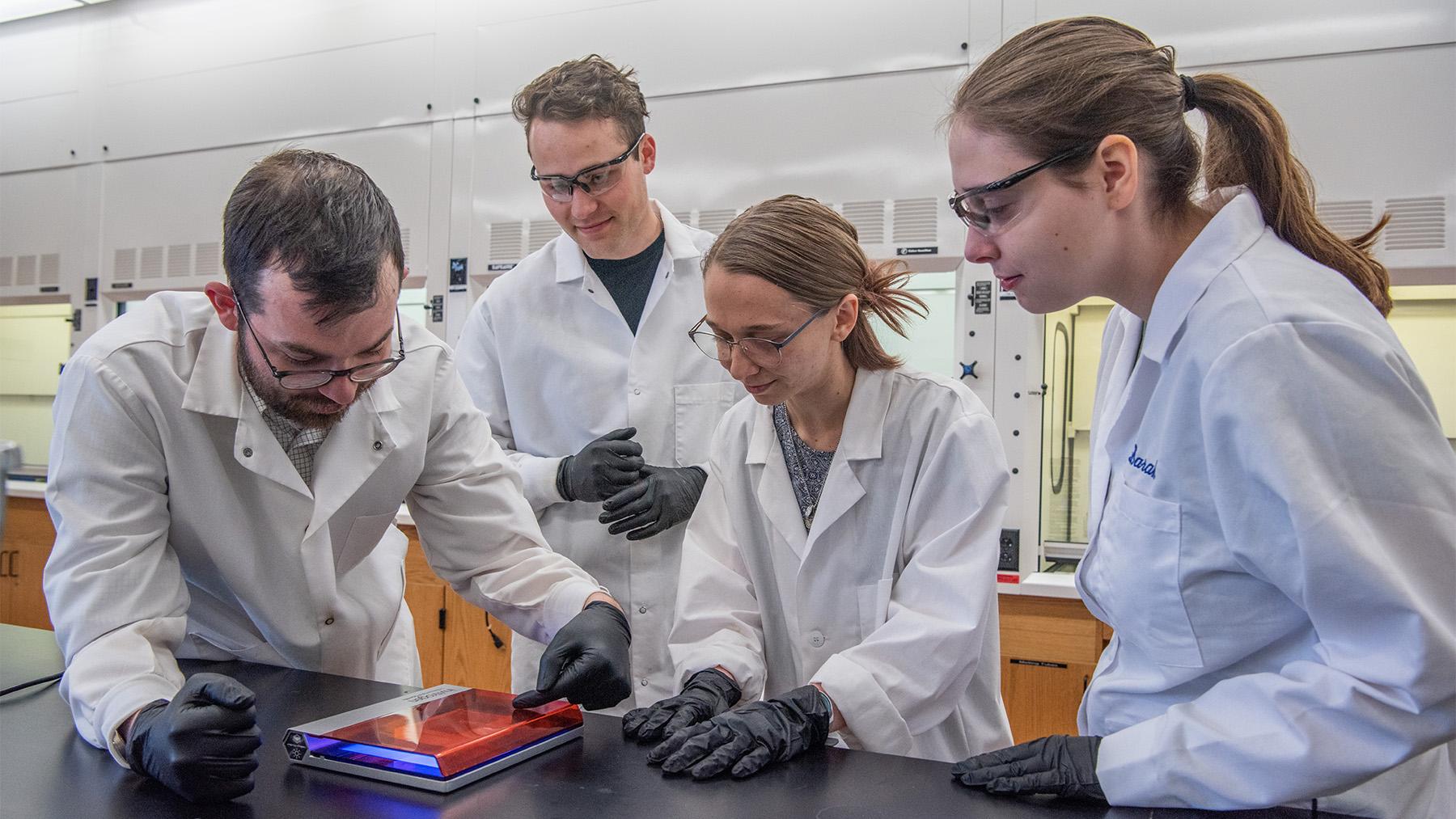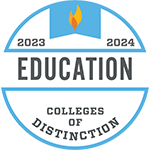Biology Education

-
Program TypeMajor
-
Degrees OfferedB.A., B.S.
-
SchoolLiffrig Family School of Education and Behavioral Sciences, School of Arts & Sciences
Prepare for a career as a secondary school teacher or for graduate study in the sciences or health-related fields.
What You’ll Learn

The biology education program will provide you skills that you can apply directly to your career in teaching biology to students or to further graduate study. You’ll gain leadership experience through a wide range of experiential learning opportunities; apply Christian, Catholic, Benedictine values to work and life; and work alongside world-class faculty with professional experience.
- Be Competitive in the Job Market
The unique focus of the program will give you a leg up in securing employment as a secondary school teacher.
- Develop Technical Proficiency in the Lab
In addition to general lab work, laboratory courses include genetics, botany, organic and inorganic chemistry, and physics.
- Strengthen Research Skills
Students search for and access sources of information, synthesize what they find, and evaluate it for relevance and reliability.
Program Information
Please visit our catalog for admission requirements and a full list of our courses.
Accreditations
-
![North Dakota Education Standards and Practices Board]()
North Dakota Education Standards and Practices Board
All the University of Mary education programs are fully accredited by the North Dakota Education Standards and Practices Board and all CAEP national standards are fully met.
Featured Faculty

Carmen Cain, PhD
Assistant Professor of Education, Director of Secondary Education, Director of Licensure Track Program
Having been an educator for over 20 years now, my first priority at the University of Mary is to facilitate student learning so teacher-candidates are prepared for the joys and challenges of their own classroom. I enjoy collaborating with an excellent faculty to provide our students with the best education possible.

Wendy Larson, PhD
Chair of Biology Education, Assistant Professor of Biology
I enjoy teaching introductory biology lectures and labs at the University of Mary because it gives me the opportunity to guide students as they apply and expand upon what they are learning in the classroom by performing their own experiments in the laboratory. I am grateful that the University of Mary has the technology and resources needed to allow students to explore a variety of scientific topics, ask creative questions, and design their own hypothesis-driven research.



